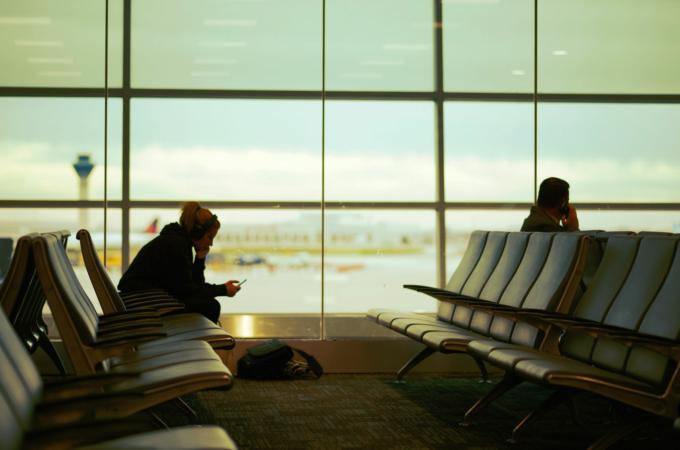Best laid plans
Working remotely from home is great in many ways, but it's accompanied by a serious case of cabin fever. Technology can do a lot to bridge the distance. Still, there's just no substitute for human interaction. That's why I look forward to traveling for work -- especially when I'm headed to Ave Maria Press headquarters in South Bend, Indiana.
Lately, however, getting there hasn't been easy. In May, my connecting flight from Atlanta was canceled. I spent the night in the airport with most of the other passengers because we were told that the flight would take off early in the morning. It didn't, and I didn't make most of the first day of the multi-day meetings I was flying there to attend.
In August, I was determined to do what I could to avoid a situation like that from happening again. So, I flew through Chicago instead. Because South Bend is only a two-and-a-half-hour drive, I figured if my flight was canceled this time, I could take a bus or rent a car. The 17-minute flight was scheduled to depart just after noontime. After a few short delays, we boarded the small plane and taxied to the runway. Then things deteriorated. We were unable to depart due to a microburst storm. We sat on the tarmac for almost two hours before we got cleared for takeoff and a safer route. But by that time, we had used up a considerable amount of fuel, and no longer had what was legally required to make the trip. The pilot headed back to the terminal, hoping to find an available gate and put in a request for more fuel. We were allowed to get off the plane, (few did), but our luggage was stuck in the hold. There was no real way to get around the situation. The plan was to refuel and then join a very long line of planes waiting to depart and get in the air before the crew timed out. Perseverance paid off, and we landed in South Bend at 9 p.m. Eastern Time.
It's possible to plan travel in a way that minimizes risk. But between weather, mechanical issues, labor laws, and air traffic control, it's impossible to avoid difficulties altogether. Even the best plans can fail. It's important to learn how to handle those failures and frustrations, and not lose sight of the destination.
This September marks the 40th anniversary of my first year of college. I remember the excitement anxiety and downright fear of that first day vividly. I moved into Harvard Yard with all kinds of plans; almost none of them have happened. Instead, my life has been radically different from the one I set out to live. The journey hasn't always been smooth, and the destination hasn't always been clear. I've had my share of frustrations, delays, and even a few cancellations. But I've had more than my share of adventure, and far more than my share of blessings. I know it's because as good as my plans may have been, God's are -- and were -- always better.
I used to think that after our children were grown, I wouldn't have much to look forward to. That has not turned out to be the case. There is life, a lot of it, ahead. Some of the things I found so difficult to sacrifice earlier in life didn't end up being sacrificed at all. There is no going back, no changing things behind me. But there are new opportunities, fresh challenges, and even more blessings to come. As long as we are here, our journey is not complete. God still has plans.
- Jaymie Stuart Wolfe is a Catholic convert, wife, and mother of eight. Inspired by the spirituality of St. Francis de Sales, she is an author, speaker, and musician, and serves as a senior editor at Ave Maria Press. Find Jaymie on Facebook or follow her on Twitter @YouFeedThem.



















